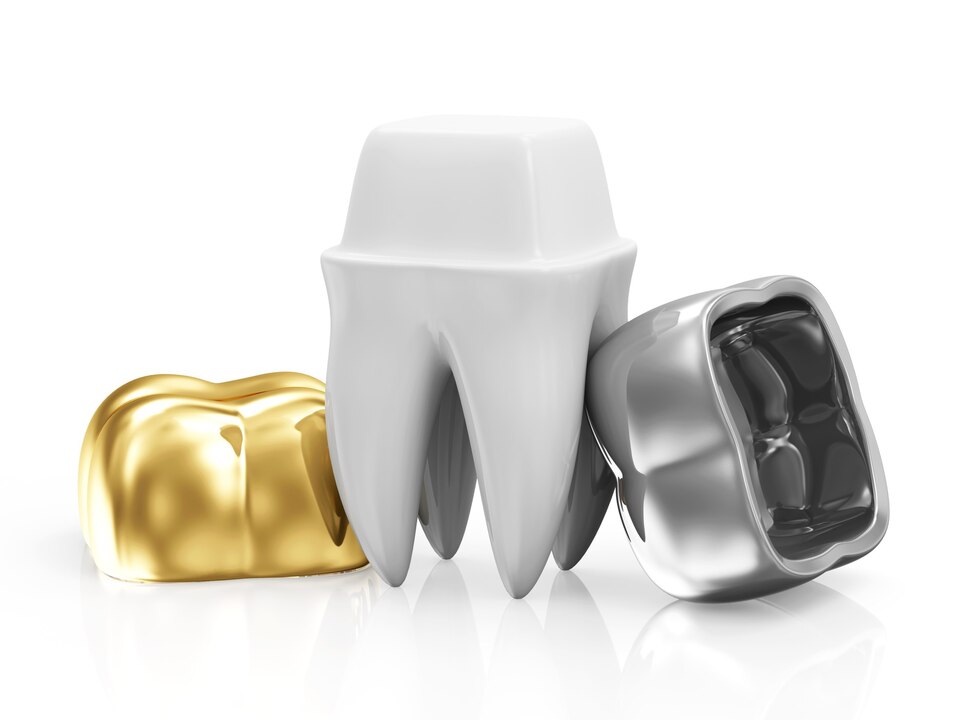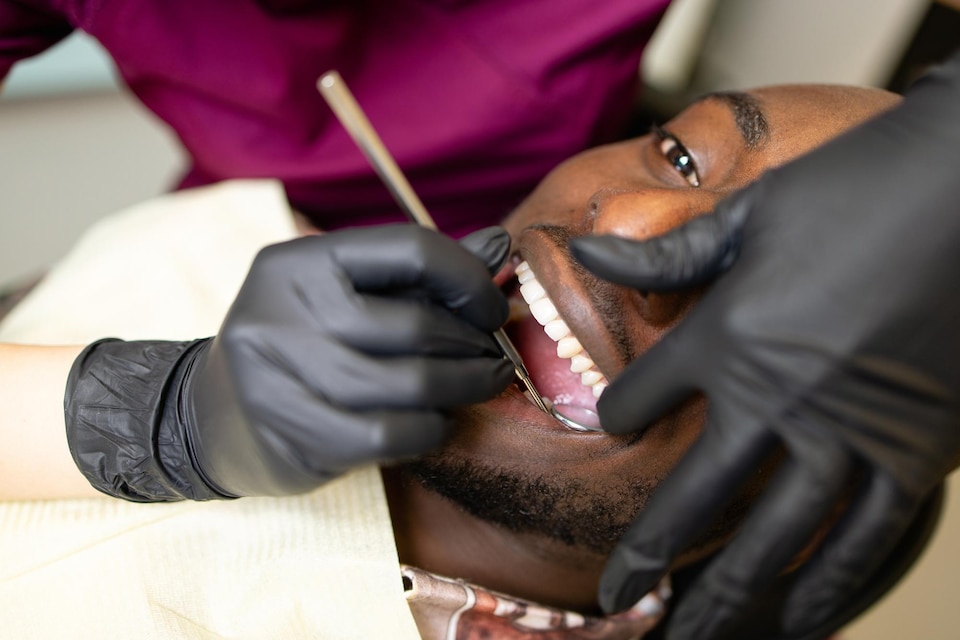Dental restorations are getting more popular, with millions of people worldwide choosing to fix their smiles. Crowns for teeth are a key part in fixing damaged or decayed teeth.
Dental experts say crowns for teeth help restore its shape, size, and look. This is vital for those with damaged or decayed teeth. It helps them feel confident about their smile again. In this article we will address the various factors for consideration when looking for affordable crowns for teeth in Kenya.

Key Takeaways
- Understanding the purpose of dental crowns
- The role of crowns in restoring damaged teeth
- The importance of dental crowns in smile restoration
- Common uses of tooth crowning procedures
- Benefits of crowning dental treatments
What Are Crowns for Teeth?
A dental crown is a cap that covers a tooth to fix its shape, size, and strength. It’s used for teeth that are badly damaged or decayed.
Definition and Purpose
Dental crowns do many things. They protect weak teeth, fix broken ones, and cover dental implants. Their main goal is to make the tooth work and look right again.
Here’s what dental crowns do:
- To protect a weak tooth from breaking or to hold together a cracked tooth
- To restore a severely damaged or decayed tooth to its original shape and function
- To cover a dental implant or support a dental bridge
Materials Used in Dental Crowns
Dental crowns come in different materials, each with its own benefits and drawbacks. The choice depends on what the patient needs, can afford, and prefers.
The most common materials for dental crowns are:
| Material | Characteristics | Aesthetics | Durability |
|---|---|---|---|
| Porcelain | Biocompatible, natural appearance | High | Moderate |
| Metal | Strong, durable | Low | High |
| Ceramic | Aesthetically pleasing, durable | High | High |
| Resin | Less expensive, easy to repair | Moderate | Low |
Choosing the right material for a dental crown is crucial for its success. The tooth’s location, the patient’s bite, and personal taste are important in making this choice.
Types of Dental Crowns Available
Knowing about the different dental crowns is key to choosing the right one for you. Each crown has its own benefits and drawbacks.
Porcelain Crowns
Porcelain crowns look very natural and are perfect for the front teeth. They reflect light well, just like real teeth.
But, they might not last as long as other crowns and can chip easily.
Metal Crowns
Metal crowns, made from gold or alloys, are very strong. They rarely chip or break.
Yet, they are noticeable and not good for teeth that show when you smile because of their metal look.
Resin Crowns
Resin crowns are cheaper and made from composite resin. They can match your tooth color, making them look nice.
But, they wear out faster and don’t last as long as other crowns.
Ceramic Crowns
Ceramic crowns are a mix of looks and durability. They can be colored to blend with your teeth.
They are strong and don’t wear down quickly, making them a favorite choice.
| Type of Crown | Aesthetic Appeal | Durability | Cost |
|---|---|---|---|
| Porcelain | High | Medium | Medium to High |
| Metal | Low | High | Medium to High |
| Resin | Medium | Low | Low to Medium |
| Ceramic | High | High | Medium to High |
Why You Might Need Crowns for teeth in Kenya
A dental crown is often recommended for several reasons. It can repair damaged teeth and support dental bridges. Crowns are versatile dental restorations that can address a variety of oral health issues. They enhance both the function and appearance of teeth.
Repairing a Damaged Tooth
One of the primary reasons for needing a dental crown is to repair a damaged tooth. Teeth can become damaged due to decay, cracks, or fractures. A crown covers the damaged tooth, restoring its shape, size, and function.
Dental professionals say, “Crowns are used to repair damaged teeth, support dental bridges, and cover discolored teeth.” This makes them a crucial treatment option for maintaining oral health.
Damaged teeth can cause discomfort and affect eating and speaking abilities. By covering the damaged area, a crown protects the tooth from further damage and alleviates pain. For instance, a tooth that has undergone a root canal may require a crown to protect it from fracture.
Supporting a Dental Bridge
Another significant reason for getting a dental crown is to support a dental bridge. A dental bridge is used to replace missing teeth, and crowns are placed on the adjacent teeth to hold the bridge in place. This not only fills the gap created by missing teeth but also restores the natural look and feel of the smile.
By supporting a dental bridge, crowns play a vital role in maintaining the alignment of surrounding teeth and distributing the forces of chewing. This can improve overall oral function and aesthetics.
Covering a Discolored Tooth
Crowns can also be used to cover discolored teeth, improving their appearance. Teeth can become discolored due to various factors, including aging, trauma, or excessive fluoride exposure. A crown can mask the discoloration, providing a more uniform and attractive smile.
For individuals concerned about the cost, understanding the dental crown cost in Kenya or the crown teeth cost in their local area can help in planning the treatment. The cost can vary based on the material used for the crown and the dentist’s expertise.
In conclusion, dental crowns are a valuable solution for various dental issues, from repairing damage to enhancing aesthetics. By understanding why you need a crown for teeth, individuals can make informed decisions about their oral health.
The Crown for Teeth Procedure Explained
Getting a dental crown involves several important steps. This process aims to fix a damaged or decayed tooth. It helps restore the tooth’s function and look.
Initial Consultation
Your journey to a new smile starts with a initial consultation with a dentist. The dentist will check your tooth and talk about your options. They will decide if a crown is right for you.
This meeting is also a chance to ask questions. You can learn more about the procedure.
Tooth Preparation
After deciding on a crown, the next step is tooth preparation. The dentist will shape the tooth for the crown. They remove any decay and shape it to fit the crown.

Crown Placement
The last step is crown placement. After preparing the tooth, a temporary crown might be put on. This protects the tooth until the permanent crown is ready.
When the permanent crown is made, it’s cemented or bonded in place. The dentist checks if it fits right and makes any needed changes.
Knowing about the dental crown procedure helps you prepare. Regular dentist visits are important for your crown’s long life.
Benefits of Getting Crowns for Teeth in Kenya
Dental crowns do more than just look good. They offer a strong and lasting fix for teeth that are damaged or don’t look right. Crowns are a key treatment in dentistry, solving many dental problems.
Improved Aesthetics
Many people choose crowns to make their teeth look better. Crowns can be made to look just like your natural teeth. This is great for those with teeth that are stained, shaped wrong, or very worn down.
Enhanced Tooth Strength
Crowns also make teeth stronger and more durable. They cover weak or damaged teeth, giving them extra support. This is key for teeth that are weakened by decay, cracks, or big fillings.
Long-lasting Solution
Crowns can last a long time, often 10 to 30 years or more with good care. This makes them a smart choice in the long run, as they save you from needing to fix or replace teeth often. The materials used, like porcelain or metal, are strong and can handle chewing and biting well.
| Benefit | Description | Patient Advantage |
|---|---|---|
| Improved Aesthetics | Enhances the appearance of teeth by matching color, shape, and size. | Boosts confidence with a more attractive smile. |
| Enhanced Tooth Strength | Provides additional support and protection to damaged or weakened teeth. | Prevents further tooth deterioration and potential tooth loss. |
| Long-lasting Solution | Durable and long-lasting, reducing the need for frequent repairs. | Saves time and money by minimizing future dental work. |
In conclusion, crowns offer many benefits. They improve how teeth look, make them stronger, and last a long time. Knowing these benefits helps patients make better choices for their teeth, leading to better health and a more confident smile.
Potential Drawbacks of Dental Crowns
Dental crowns have many benefits, but they also have some downsides. Knowing these can help you decide if a crown is right for you.
Cost Considerations
The cost of dental crowns can be a big drawback. Prices vary based on the material, location, and dentist’s fees. In Kenya, the cost of permanent silver teeth can vary a lot.
Also, you might need extra procedures like root canals or tooth extractions. These can increase the cost. Always talk to your dentist about the total cost to avoid surprises.
Sensitivity Issues
Some people may feel sensitivity after getting a crown. This can be due to the procedure or the crown materials. Most of the time, the sensitivity goes away on its own.
But sometimes, it can last longer. Your dentist might suggest using desensitizing toothpaste. If the sensitivity doesn’t go away, see your dentist for help.
Maintenance Requirements
To keep your crown in good shape, you need to take care of it. This means regular dental visits, good oral hygiene, and avoiding hard foods.
| Maintenance Task | Frequency | Importance |
|---|---|---|
| Regular Dental Checkups | Every 6 months | High |
| Brushing Teeth | Twice a day | High |
| Flossing | Once a day | High |
| Avoiding Hard Foods | Daily | Medium |
Knowing the potential drawbacks of dental crowns can help you make a better choice for your dental health.
How to Care for Your Dental Crowns
Keeping your dental crowns in good shape needs a mix of daily care and regular dentist visits. Taking good care of them can make them last longer and keep your mouth healthy.
Regular Dental Checkups
Going to the dentist regularly is key for your crowns to last. Your dentist can check for any wear or damage during these visits. A study shows that regular checkups can catch problems early.
For more on dental health, check out this article about dental crowns and fillings.
Make sure to schedule checkups every six months. This keeps your crowns and teeth in top shape.
At-Home Oral Hygiene Tips
Keeping your mouth clean at home is just as important as dentist visits. Brushing twice a day with fluoride toothpaste and flossing every day stops plaque from building up. Dental experts say, “Good oral hygiene is essential for crowns to last.”
Using mouthwash can also help fight gum disease. And remember, don’t chew on hard things or use your teeth as tools. This can harm both your natural teeth and crowns.
“The key to a long-lasting dental crown is proper care and maintenance,” says a renowned dental expert.
Crowns vs. Other Dental Restorations
There are many ways to fix a damaged tooth, like crowns, fillings, bridges, and implants. Each has its own benefits. The right choice depends on the damage, your health, and what you prefer. Knowing the differences helps you make a smart choice.
Fillings vs. Crowns
Filings fix small tooth damage from decay. Crowns cover bigger damage. Fillings are less invasive and cheaper than crowns. For more on crowns and fillings, check out this link.
Here’s a quick comparison:
| Characteristics | Fillings | Crowns |
|---|---|---|
| Purpose | Repair minor tooth decay | Cover and protect a damaged tooth |
| Invasiveness | Less invasive | More invasive |
| Cost | Generally less expensive | Generally more expensive |
Bridges vs. Crowns
Bridges replace missing teeth, while crowns protect damaged ones. Crowns also anchor bridges to teeth.
Key differences between bridges and crowns include:
- Bridges replace missing teeth, crowns protect damaged ones.
- Crowns support bridges.
Implants vs. Crowns
Implants are a long-term fix for missing teeth, with a titanium post in the jawbone. Crowns go on implants for a natural look.
The main differences are:
- Implants replace the tooth root, crowns cover damaged teeth.
- Implants are more invasive than crowns.
Choosing the Right Dentist for Crowns
Finding the right dentist is the first step to a perfect smile with dental crowns. A skilled and caring dentist ensures your crowns fit perfectly. This improves both how your teeth look and how they function.
What to Look For
When looking for a dentist for your crowns, consider a few key things. Experience is crucial; choose a dentist with a good track record in dental restorations. Also, think about the technology and materials they use. Modern dental tech can make the crown fitting process more precise and comfortable.
It’s also important to find a dentist who offers personalized care. A great dentist will listen to your needs and preferences. They will make sure your crowns match your dental structure and look exactly how you want.
Questions to Ask
At your first visit, ask important questions to understand the dentist’s skills and approach. Here are some questions to ask:
- What experience do you have with dental crowns?
- What materials do you use for crowns, and why?
- Can I see before-and-after photos of previous patients?
- How long does the crown fitting process typically take?
- What is the expected cost, and are there any additional fees?
These questions help you learn important details. They also show if the dentist is professional and willing to listen to your concerns.
| Criteria | What to Consider | Why It Matters |
|---|---|---|
| Experience | Years of practice, number of crown procedures performed | Ensures skill and familiarity with various cases |
| Technology | Use of digital impressions, CAD/CAM technology | Improves precision and comfort during the procedure |
| Materials | Type of porcelain, ceramic, or metal used | Affects durability, aesthetics, and compatibility |
| Personalized Care | Time taken to understand patient needs, customization options | Ensures crowns meet individual patient requirements |
By carefully looking at these factors and asking the right questions, you can make a smart choice. This careful approach will lead to a successful outcome and a smile you’ll be proud of. To find more info on qualified dentists and their locations in Kenya…

Frequently Asked Questions About Dental Crowns
Dental crowns are a common fix for damaged or discolored teeth. Patients often have questions and worries. Here, we answer some of the most common questions about dental crowns.
Longevity of Crowns
Crowns can last 10 to 15 years or more with good care. The life of a crown depends on the material and how well you take care of your teeth. For more info on dental crowns and their benefits, check out this resource.
Discomfort During the Procedure
Getting a crown usually doesn’t hurt because local anesthesia is used. Some might feel sensitivity after, but it’s usually short-lived.
Replacing Crowns
Crowns can be replaced if they get damaged or worn out. The process involves taking out the old crown and getting the tooth ready for a new one. Keeping up with good oral hygiene and regular dental visits can help your crowns last longer.
FAQ
What is a crown for teeth?
A crown for teeth is a dental restoration. It covers a damaged or decayed tooth. It restores the tooth’s shape, size, and function.
How long do dental crowns last?
Dental crowns can last from 5 to 15 years or more. This depends on the material, oral hygiene, and wear and tear.
Does getting a crown hurt?
Getting a dental crown doesn’t hurt because it’s done under local anesthesia. But, some sensitivity might be felt after.
Can crowns be replaced?
Yes, dental crowns can be replaced. This is if they get damaged, worn out, or no longer fit.
What is the cost of a dental crown in Kenya?
The cost of a dental crown in Kenya varies. It depends on the material, dentist’s fees, and location. On average, it’s between Ksh 15,000 to Ksh 50,000 or more.
What are the different types of dental crowns available?
There are several types of dental crowns. These include porcelain, metal, resin, and ceramic crowns. Each has its own advantages and disadvantages.
How do I care for my dental crown?
To care for your dental crown, brush and floss regularly. Also, attend regular dental checkups. This ensures the crown stays in good condition.
Can I get a metal crown for my tooth?
Yes, you can get a metal crown for your tooth. Metal crowns are made from metal alloys. They are durable and strong, often used for back teeth.
What is the difference between a tooth cap and a crown?
A tooth cap and a crown are the same thing. They both cover a tooth. “Crown” is more commonly used in dental terms.
Are silver teeth or silver caps on teeth still used?
Silver caps or crowns are not as common as they used to be. Now, porcelain or ceramic crowns are preferred for their looks. But, metal crowns, including silver alloys, are still used in some cases.